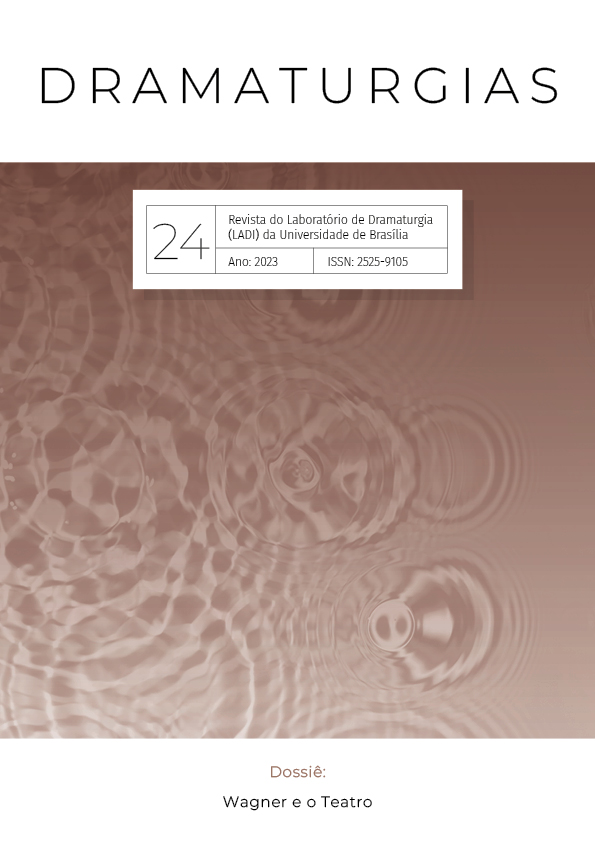Richard Wagner’s Essays and musical-dramatic output as a source of Thomas Mann’s inspiration.
DOI :
https://doi.org/10.26512/dramaturgias24.52123Mots-clés :
Richard Wagner, Tomas MannRésumé
The research topic of the article focuses only on the question of Wagner’s influence on Mann. Thomas Mann is considered the writer most obsessed with music. The purpose of the article is to substantiate the reason for the writer’s focus on Wagner’s music, which determined the huge capacity of Mann’s vision of the world and his multi-layered dramaturgy.
The subject of the research is to study of the influence of Wagner’s musical thought on Mann’s literature, for which empirical, comparative, and interdisciplinary research methods are used. From a methodological point of view, S. Bolduc, R. Pratt, D. Nagy, and U. Jung’s works are important.
The article discusses the following: Mann’s new genre model—the anti-novel— inspired by Wagner’s musical drama; the influence of stylistic and formative elements of Wagner’s music on Mann’s literature; the influence of Wagner’s tendency to merge psychology and mythos on Mann’s oeuvre; the dominance of inner spiritual processes in Wagner’s dramas, as an inspiration for developing the technique of inner dialogue and internalization of the narrative in the writer’s novels; the influence of Wagner’s leitmotif system on the writer’s technique of associative connections.
As not only the individual characteristics, but the whole system of artistic thought of Wagner’s music became a source of inspiration for Mann, the relevance of the article is conditioned by the complex study of Wagner’s influence on Mann.
Téléchargements
Téléchargements
Publié-e
Comment citer
Numéro
Rubrique
Licence
(c) Tous droits réservés Gvantsa Ghvinjilia 2023

Cette œuvre est protégée sous licence Creative Commons Attribution - Partage dans les Mêmes Conditions 4.0 International.
Autores mantém os direitos autorais e concedem à revista o direito de primeira publicação, com o trabalho simultaneamente licenciado sob a Licença Creative Commons Attribution que permite o compartilhamento do trabalho com reconhecimento da autoria e publicação inicial nesta revista.



